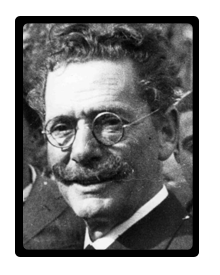JOSÉ SERRANOHe was born in the town of Sueca in Valencia in 1873. As with many other composers of the Spanish lyrical-drama genre known as Zarzuela, it was his father, the conductor of a musical band, who showed him his first steps in this field. At the age of 16, he moved to Valencia to continue with his studies, relocating later to Madrid with the intention of obtaining a grant to finance his studies, though there he stumbles upon a vastly different world to the one he had left behind in Valencia, and where his chances of success were scant. The progressive blindness of the teacher Fernández Caballero forced him to request Serrano's aid for the score to Processional Giants (Gigantes y Cabezudos), a work which was praised in El Saloncillo, a magazine in which Serrano began to write for some months earlier. Serrano's debut composition enjoyed a successful premiere, 'El Motete', dates back to 1900 and it was the Álvarez Quintero brothers who offered him the libretto. José Serrano did not squander this chance to place himself amongst the leading composers. His standing was enhanced by the works undertaken in the first third of the 20th century, making a name for himself in what was known as the 'little genre' which, although this would lose ground in favour of classical zarzuela, would be much loved for many years by theatregoers. Amongst his more than 50 theatrical works, worthy of special mention are: the 'Moorish Queen' (La Reina Mora) with text by the Álvarez Quintero brothers, 'Moors and Christians' (Moros y Cristianos), 'The Soul of God' (Alma de Dios), 'The Song of the Forgotten' (La Canción del Olvido), 'The Carnations' (Los Claveles), 'The Sorrowful' (La Dolorosa) and 'Los Gatos' Lodge' (La Venta de los Gatos). Serrano is also held in great renown by all natives of Valencia as the composer of the anthem for the Regional Exhibition of Valencia in 1925, or the well-known pasodoble entitled "El Fallero". Serrano died in Madrid on the 8th of March 1941 before he could see the premiere of los Gatos' Lodge, based on a narration by the poet Becquer.
|

